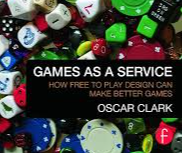Main Day 1 - Tuesday 9th September
Morning Plenary Sessions
8:00 am - 8:45 am
Registration & Breakfast
8:45 am - 9:00 am
Chair Opening Remarks
9:00 am - 9:30 am
Opening Panel Discussion – Accelerating Content Creation: Quantity & Quality Control in Live Service Games
Patrick Moran -
Chief Operating Officer and Co-Founder,
Look North World
Agnes Pinter - Senior Director Production, Product Madness
Viktor Stankov - Production Director, Gameloft
Bernardo Fernandes - Former-Development Director II, Former-Kabam
In the fast-paced world of live service gaming, getting fresh, engaging content to players is essential for retaining their attention, but how can studios maintain top-notch quality under pressure? This session will explore the essential nature of understanding your game’s intrinsic player motivation, strategies for engaging with and implementing player feedback, and the importance of having a scalable and agile game design and technical infrastructure. Learn more about:
- Balancing the quantity of content output, with designing a game that caters to a variety of player abilities.
- Navigating high-volume output and enhancing player experience by tailoring content for diverse skill levels and playstyles.
- Optimising your studio’s technical infrastructure and team’s expertise to improve observability, the integration of player feedback, and reduce downtime and errors.
9:30 am - 10:00 am
Presentation – Hidden Gems: How to Increase Player-Spend
Liam Wiltshire -
Head of Payments & Compliance,
Tebex
Player monetization sits at the cornerstone of your game’s sustainability - a must-have for the long-term success of live service games. Yet studios are unintentionally leaving millions on the table by overlooking critical levers that can drive higher player spend and revenue growth without damaging trust or retention.
In this data-driven keynote, Liam Wiltshire, Head of Payments at Tebex, draws on 12+ years of experience, supporting over $1 billion USD in transactions for studios like Rockstar Games, Studio Wildcard, and others to share proven tactics that maximize revenue while strengthening player loyalty. Don’t miss the keynote session where Liam will cover:
- How small changes to payment methods, checkout flows, and store design can significantly boost basket size and player LTV by unlocking hidden revenue.
- Optimizing the monetization experience across PC and mobile without resorting to "pay-to-win" models.
- Practical frameworks for scaling Direct-to-Consumer monetization without overwhelming internal teams.
10:00 am - 10:30 am
Presentation – 7 Predications for AAA Live Service Games
Sergei Vasiuk -
Director of LiveOps,
Wargaming
This compelling keynote will dive deep into the trends, challenges, and innovations that will define AAA live service games from 2025 to 2030. Whether you're a developer, publisher, or strategist, these insights will help you stay ahead of the curve - before the industry shifts beneath your feet. Attendees will gain a deeper understanding of:
- Bold predictions backed by data and pertinent industry trends.
- Emerging engagement and monetization models that will redefine players' experience.
- Tech and toolset breakthroughs that will shape operational excellence.
- Strategic insights for navigating an evolving market.
10:30 am - 11:00 am
Morning Coffee Break
Morning Stream Sessions
Stream A – Game Dev’: Game Design, Game Development, & Performance Optimisation
11:00 am - 11:30 am Fireside Chat – Designing for Engagement: Balancing Design, Player Segmentation, and Seasonal Themes Michael How - Expert Level Designer, Sledghammer GamesThis fireside chat will elaborate on how studios can achieve great live ops success in-part by aligning new game seasons and themes, with fresh level design concepts. This conversation will also explore the importance of:
- Level design strategies and methodologies that contribute to the success of live service games
- Organising and supporting your teams to give them the best chance of success delivering live season content
- Leveraging analytics to and creating content for a diverse player base
Stream A – Game Dev’: Game Design, Game Development, & Performance Optimisation
11:35 am - 12:05 pm Panel Discussion – The Art of Live Games: Leveraging Technology to Create an Ever-Evolving Visual Identity Rachele Doimo - Art Director, Square EnixAlex Perkins - Art and Technical Art Director, Avalanche Studios - Liverpool
Prashant Patil - Art Director, Look North World
Creating a distinct and consistent visual identity is essential for a successful LiveOps game. Panellists will outline their best practice and strategies for establishing a memorable visual art identity, maintaining aesthetic consistency, and achieving clarity that satisfies players by:
- Establishing a visual hierarchy to enhance the player experience and visual satisfaction.
- Utilising automated tools and AI to streamline content production, while making the most of your talented team and managing player feedback.
- Managing budgets effectively to deliver quality visuals without compromising on impact.
Stream A – Game Dev’: Game Design, Game Development, & Performance Optimisation
12:10 pm - 12:40 pm Panel Discussion – Automating Localisation at Scale: Leveraging Technology for LiveOps Success Tamara Tirjak - Head of Localisation, Frontier DevelopmentsEwa Dacko - Localization Team Lead, Ten Square Games
In the fast-paced world of LiveOps, localisation must keep up with constant content updates and evolving cultural trends. This session will explore a variety of ways studios can successfully integrated technological automation into their localisation workflow, simultaneously improving efficiency, maintaining quality, and engaging players while also navigating the legal risks of automation by:
- Implementing technology-driven localisation tools such, as machine translation and AI, to streamline content updates and reduce manual workload.
- Mitigating legal and technical risks associated with automated workflows.
- Balancing automation with quality control in LiveOps localisation.
Stream A – Game Dev’: Game Design, Game Development, & Performance Optimisation
12:45 pm - 1:15 pm Presentation – Transforming Content Creators into a Scalable Growth Engine Robin Åström - Founder & CEO, WehypeStream B – Game Operations: Studio, Acquisition, Engagement, & Monetisation
11:00 am - 11:30 am Presentation – Lightning Lessons in LiveOps: Less Is More Oscar Clark - Author, AuthorEvery month, live game teams pull off miracles – delivering fresh, engaging content against impossible odds. But the relentless pace breeds overscope, rigid systems, and inter-team friction. In this session, Oscar Clark, pioneer of Live Service games and author of Games as a Service, challenges the “Spreadsheet of Doom” and shows how real success comes from smarter choices, sharper insights, and healthier teams. Key takeaways include:
- Cutting friction not creativity.
- Letting data inform direction in delivery and performance.
- Engagement = Retention = Revenue.
Stream B – Game Operations: Studio, Acquisition, Engagement, & Monetisation
11:35 am - 12:05 pm Presentation – Scaling Diversity: Managing a Cross-Platform Live Games Portfolio Dimo Dimov - Vice President Live Games, GameloftAs one of the longest-standing publishers in the mobile space, Gameloft has undergone a strategic transformation: evolving from a mobile-only catalogue to a diversified, cross-platform portfolio spanning mobile, PC, and console. This session will explore how multi-platform growth impacts live game management, how different lifecycle stages require different strategies, and how performance turnarounds can be achieved. Through two real-world examples, dive into:
- Organizational implications of managing across platforms.
- Mobile-First to Cross-Platform: Gameloft’s Strategic Shift.
- Live Games at Different Lifecycles: The 1-Year vs. 15-Year Challenge.
Stream B – Game Operations: Studio, Acquisition, Engagement, & Monetisation
12:10 pm - 12:40 pm Presentation – Beyond the Big Three: Unlocking Growth Through Alternative Gaming Platforms Anna Stoilova - Co-Founder & CEO, Rogues StudiosWhile mobile, PC, and console dominate the conversation, a new frontier is emerging across platforms like Discord, Telegram, and other community-driven ecosystems. Drawing on first-hand lessons from Rogues Studio’s successes, Anna Stoilova shares how studios and publishers can collaborate to tap into these overlooked channels — reducing UA costs and creating organic player exchanges by:
- Leveraging community-first platforms to drive cross-game engagement and long-term retention
- Reducing acquisition spend through peer-to-peer marketing and strategic studio partnerships.
- Expanding publishing strategies to include non-traditional ecosystems with high conversion potential.
Stream B – Game Operations: Studio, Acquisition, Engagement, & Monetisation
12:45 pm - 1:15 pm Presentation – S.H.I.F.T. Your Mindset: AI Supports Engaging Player Connections Simon Stokes - Head of Data and Strategy, Keywords StudiosRakesh Mistry - Product and GTM Director, Keywords Studios
In gaming, AI is often framed as a tool for efficiency, but at Keywords Studios, we see it as a force for transformation. Join Rakesh Mistry and Simon Stokes as they explore how AI is reshaping the player journey, from smarter support to deeper community insights. This session dives into:
- How context-aware AI reduces churn and boosts retention.
- Why support is evolving into a launchpad for fandom.
- How new tech is redefining engagement across live services.
Plus, be the first to hear exclusive announcements from Keywords Studios that signal the future of AI-powered player experiences.
Lunch
1:15 pm - 2:15 pm
Lunch
Afternoon Plenary Sessions
2:15 pm - 2:45 pm
Presentation – From Clicks to Coins: Webshop Strategy in the Post-Epic Era
Dave Mata -
Head of Product,
Maglev Industries
The monetisation landscape has been fundamentally disrupted by recent changes in the Epic v. Apple case, opening the floodgates for direct-to-player strategies around webshops. This session, led by Dave Mata, starts from his years of webshop experience and jumps to now, unpacking what worked, what is working, and what's next in this quickly shifting environment, such as:
- Development of the smart webshop.
- Mitigating liability and risk through Merchant of Record partnerships.
- Leveraging Agentic AI to hypersegment and scale dynamic revenue-generating storefronts.
2:45 pm - 3:15 pm
Presentation – Billions in the Balance: How Data Powers the World’s Top Mobile Games
Chris Han -
Co-Founder,
ThinkingData
What separates the good from the truly great in mobile gaming? It’s not just game design, it’s the ability to turn player data into precise, real-time action. In this presentation, Chris Han, Co-founder of ThinkingData, unveils the data-driven strategies powering some of the most successful mobile games globally. Drawing from a decade of experience supporting 1,500+ studios and 8,000+ games, Chris reveals how elite publishers like Century Games ($2B+ revenue), Habby (Archero, Survivor.io), and Wuthering Waves leverage real-time analytics to transform insights into billion-dollar outcomes by maximising:
- Operational Alignment: Learn how Century Games uses a unified data platform to synchronize UA, LiveOps, and product teams—turning player behavior into 11% conversion uplifts within days.
- Data as Philosophy: Gain insight into Habby’s iterative approach, where self-deployed analytics fuel a proprietary playbook for hits like Survivor.io ($500M+ revenue).
- Infrastructure at Scale: See behind-the-scenes of Wuthering Waves’ global launch—handling 150B daily data points across 6 clusters while ensuring GDPR compliance.
- ThinkingEngine’s Edge: Deep dive into the multi-cluster architecture and genre-specific toolkits that enable studios to build, operate, and grow with precision.
3:15 pm - 3:45 pm
Presentation – Blast Park Economy Design: Rise and Fall
Mykola Akulov -
Principal Lead Monetization Designer,
Outfit7
This use-case based talk, led by Mykola Akulov, is about developing a rail shooter game from the perspective of a System, Economy, and Monetisation designer. Learn more about:
- Which systems were included in the game, and why.
- Defining and balancing the game economy.
- What the economy simulator and simulation look like.
- How to monetise the game.
3:45 pm - 4:15 pm
Presentation – To the GWENTfinity and Beyond: How CD PROJEKT RED Put GWENT On the Path of Sustainability with Players' Needs in Mind
Vladimir Tortsov -
Director of Live Ops,
CD PROJEKT RED
Not every live service game can run forever, but knowing when and how to transition from active development to sustained support is critical for long-term success. This session will explore how CD PROJEKT RED successfully made such a switch for its popular live service card battler by involving players in the process:
- Identifying the right time to transition a game to a self-sustaining model or phase it out.
- Optimising monetisation for a self-sustaining model while keeping players engaged.
- Aligning development, LiveOps, and business strategy to provide players with game management tools.
Afternoon Coffee Break
4:15 pm - 4:45 pm
Afternoon Coffee Break
Afternoon Plenary Sessions
4:45 pm - 5:15 pm
Fireside Chat– Keeping Players in the Loop: Live Events and Streams as Engagement Engines
Adam Phillips -
Developer Relations Lead, UK & Ireland,
Xsolla
Steve Wilson - Co-Founder, Boost Communications
Connecting with players goes far beyond the game itself. Events, whether on the show floor or broadcast to millions online, are powerful tools to inform, engage, and grow communities. In this fireside chat, Adam Phillips from Xsolla sits down with industry veteran Steve Wilson to share hard-earned lessons from years of running live streams and large-scale physical events. Together, they’ll dive into:
- Leveraging live events and streams to strengthen player relationships, beyond classic marketing.
- Outlining practical and proven tactics.
- Detailing and behind-the-scenes stories to help you maximize the impact of your next event.
5:15 pm - 5:45 pm
Presentation – Mastering the Live Ecosystem: Designing Games for Long-Term Engagement
Matthew Laurence -
Engagement Director,
Avalanche Studios Group
Creating a truly engaging live game requires more than just strong gameplay—it’s about crafting an evolving ecosystem of systems, community, and brand identity that players want to return to. Many live games fail because they overlook one key reality: players always have alternatives, and sustaining loyalty demands constant innovation. This session will break down the essential elements of best-in-class live game design, from day-one execution to ongoing adaptation, ensuring your game thrives in an ultra-competitive market by:
- Creating a live game that takes long-term systems design, unique selling points, community support, and brand identity into account.
- Balancing design and business expectations with an understanding of player loyalty and for steady continued growth.
- Maintaining best-in-class design throughout the live game life cycle, while also identifying challenges and pre-emptively tackling them along the way.
5:45 pm - 6:15 pm
Closing Panel Discussion – Crafting the Ultimate Metagame: Aligning Strategy, Monetisation and Player Engagement
Zorbey Canturk -
Associate Product Director,
King
Francesca Passoni - Product Marketing Manager, Paradox Interactive
Oliver Wauters - Lead Game Designer, Glowmade
Maurício Juliano dos Santos - Game Designer, Kolibri Games
In a landscape that relies on player engagement, the importance of the metagame has never been more critical. This session explores how a well-designed meta layer enhances both gameplay and monetisation, while also fostering community. Our experts will dive into strategies such as:
- Designing metagame strategies that resonate with production and product teams.
- Leveraging in-game events and in-app purchases to create new revenue streams and strengthen community loyalty.
- Identifying ways to best assess the market and create a product that both entices new players and caters to the title’s current community.



























































